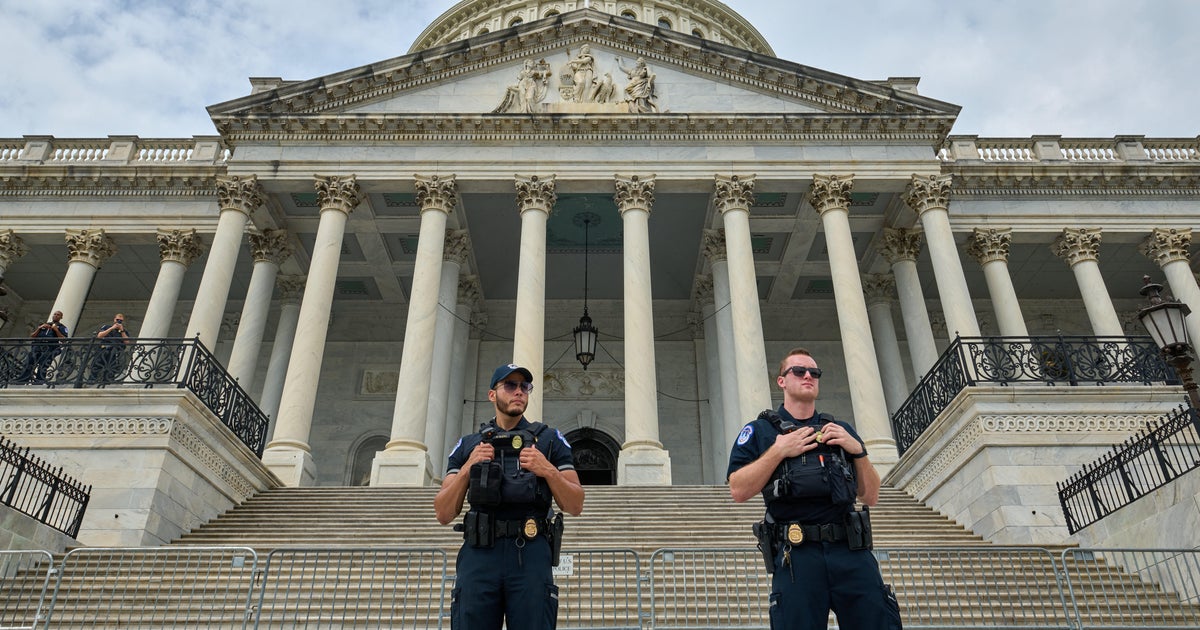Supreme Court takes up blockbuster case over Mississippi's 15-week abortion ban
Washington — The Supreme Court on Monday agreed to take up a blockbuster dispute over a Mississippi ban on abortions after 15 weeks of pregnancy, setting up a high-stakes showdown over the future of Roe v. Wade.
The battle will be the first test of limits on abortion access to go before the Supreme Court's expanded 6-3 conservative majority and could pave the way for more restrictions, as the dispute takes aim at the landmark 1973 ruling in Roe, which established a woman's right to an abortion. Arguments will likely be heard in the fall, during the high court's next term, with a decision expected by summer 2022.
The justices will specifically weigh whether all pre-viability prohibitions on elective abortions are unconstitutional, according to an order issued Monday. The high court's abortion cases have established a woman has a right to an abortion before fetal viability, which generally occurs around 24 weeks into a pregnancy.
The Supreme Court's rightward shift during former President Donald Trump's tenure left pro-abortion advocates concerned about the future of abortion access, as a growing number of Republican-led states have passed laws restricting the procedure, at times with the stated goal of overturning Roe.
While the nation's highest court last year struck down a Louisiana abortion regulation that required doctors that perform abortions to have admitting privileges at nearby hospitals, the Supreme Court's conservative majority has grown since then with the appointment of Justice Amy Coney Barrett in October to replace the late Justice Ruth Bader Ginsburg.
At issue in the case before the justices is a Mississippi law enacted in 2018 that prohibits most abortions after 15 weeks of pregnancy. The state's only abortion clinic, Jackson Women's Health Organization, swiftly filed suit to challenge the law, and the federal district court struck down the ban, finding it unconstitutional. The 5th U.S. Circuit Court of Appeals affirmed, citing Supreme Court's abortion precedent.
Mississippi's attorney general urged the Supreme Court to hear its appeal, arguing in court filings the case presents it with an opportunity to reconcile its "conflicting statements regarding the test to apply when analyzing the validity of a pre-viability law that protects women's health, the dignity of unborn children, and the integrity of the medical profession and society."
"[T]he viability rule was created outside the ordinary crucible of litigation, failed to take account of the state's accepted interest in maternal health and fetal pain, is increasingly out of step with other areas of the law, rejects science and common sense, and is shaky precedent at best," the state argued. "The court should revisit it."
But the Center for Reproductive Rights, which is representing Jackson Women's Health Organization, argued the court should reject Mississippi's argument, as it is "based on a misunderstanding of the core principle of" the Supreme Court's past decisions.
"Roe and Casey, and the Court's subsequent cases, are clear that, before viability, it is for the pregnant person, and not the state, to make the ultimate decision whether to continue a pregnancy," attorneys for the group told the Supreme Court. "A pre-viability abortion ban unquestionably contravenes this fundamental tenet of the Court's abortion jurisprudence."
Nancy Northup, president and CEO of the Center for Reproductive Rights, said following the Supreme Court's decision to take the case that "alarm bells are ringing loudly about the threat to reproductive rights" and warned a ruling reversing Roe would lead numerous states to outlaw abortion outright.
"Already, abortion is nearly impossible to access for people in states like Mississippi, where lawmakers have been chipping away at the right to abortion for decades," she said. "We will keep fighting to make sure that people do not lose this fundamental right to control their own bodies and futures."
But the Susan B. Anthony List, an anti-abortion rights ground, applauded the Supreme Court for agreeing to hear Mississippi's appeal.
"This is a landmark opportunity for the Supreme Court to recognize the right of states to protect unborn children from the horrors of painful late-term abortions," Marjorie Dannenfelser, the group's president, said in a statement, adding that it's "time for the Supreme Court to catch up to scientific reality and the resulting consensus of the American people as expressed in elections and policy."
White House press secretary Jen Psaki told reporters that President Biden is committed to codifying Roe regardless of how the Supreme Court rules in the case.
"Over the last four years, critical rights like the right to health care, the right to choose have been under withering and extreme attack, including through draconian state laws," she said. "The president and the vice president are devoted to ensuring that every American has access to health care, including reproductive health care, regardless of their income, zip code, race, health insurance status or immigration status."
The legal fight over Mississippi's law has been closely watched by those on both sides of the debate over abortion access, particularly as the Supreme Court's ideological shift to the right raised the stakes. Conservatives believe the high court is poised to chip away at or overturn Roe with its new 6-3 conservative majority, while pro-abortion advocates are sounding the alarm the right to an abortion is more at risk than it ever has been.
The justices mulled whether to take the case for several months, listing it to be discussed at more than a dozen private conferences.



